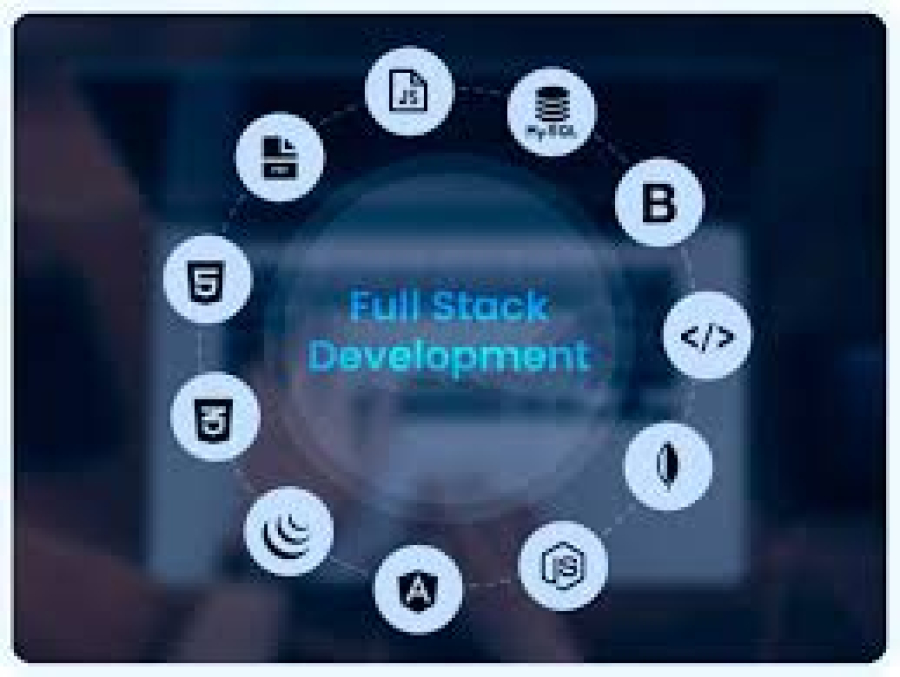Building a Vue.js E-Commerce Site from Scratch
Creating a feature-rich and user-friendly e-commerce website has never been more accessible, thanks to modern JavaScript frameworks like Vue.js. Whether you’re a freelancer, startup, or an independent developer, Vue.js offers a powerful, lightweight, and flexible platform to build online stores that are responsive, SEO-friendly, and easy to maintain.
At FreelancerBridge, we guide web developers and freelancers through actionable, real-world tutorials. In this article, you'll learn how to build a Vue.js e-commerce website from scratch, along with best practices, key components, and essential features to include. This guide is perfect for those who want to enter the growing digital commerce market with a modern and scalable tech stack—without diving into code.
✅ Long Description (~1000 Words)
🔹 Why Choose Vue.js for E-Commerce?
Vue.js is a progressive JavaScript framework designed for building interactive web interfaces. It’s lightweight, fast, and perfect for dynamic applications such as e-commerce platforms. Vue’s component-based architecture makes it easier to organize features like product listings, shopping carts, and user authentication.
Top Reasons to Use Vue.js for E-Commerce:
Lightweight & Fast: Vue apps load quickly, improving user experience.
Flexible & Modular: Build custom components for scalability.
Strong Community: Tons of packages and third-party tools.
Great for SEO: With proper configuration, Vue apps can be search-engine friendly.
Easy to Learn: Ideal for freelancers and beginners transitioning from HTML/CSS.
🔹 Planning Your E-Commerce Site
Before starting development, outline the core features your e-commerce site needs. This helps you break the project into manageable components.
Essential Features of an E-Commerce Site:
Homepage with Featured Products
Product Listing & Filtering
Product Detail Page
Shopping Cart
Checkout Process
User Authentication (Login/Register)
Admin Dashboard
Payment Gateway Integration
Order Management
Mobile Responsiveness
🔹 Key Components of a Vue.js E-Commerce Website
Vue allows you to divide your site into reusable components. Below are the crucial components you should consider:
Navbar/Header: Includes site logo, search, and cart icon.
ProductCard.vue: A modular card displaying product info.
ProductList.vue: Displays all products in grid or list view.
ProductDetail.vue: Contains detailed product description, images, and add-to-cart functionality.
Cart.vue: Shows all products added to the shopping cart.
Checkout.vue: Billing/shipping details and payment options.
Login.vue / Register.vue: Handles user authentication.
AdminPanel.vue: For managing product inventory and orders.
🔹 E-Commerce Workflow for Freelancers
As a freelancer building e-commerce sites for clients, it’s important to follow a structured workflow to ensure timely and professional results:
Understand Client Needs
Identify the target audience, product type, and expected functionalities.
Wireframing and UI/UX Planning
Create layout designs for desktop and mobile using tools like Figma or Adobe XD.
Select Tech Stack
Frontend: Vue.js
Backend: Firebase / Node.js / Laravel
Payment: Stripe / Razorpay
Database: Firestore / MongoDB / MySQL
Break Down Development Phases
Work module-wise: Start with homepage, then product features, then cart, etc.
QA Testing
Test for responsiveness, form validation, broken links, and cart behavior.
Deployment & SEO Optimization
Use tools like Vite or Nuxt for performance and SSR (Server-Side Rendering).
🔹 Best Practices When Building Vue.js E-Commerce Sites
1. Use Vue Router for Navigation
Handle page navigation for a seamless user experience.
2. Implement Vuex for State Management
Useful for managing global data like cart items or user sessions.
3. Optimize Images and Assets
Reduce page load times by compressing product images and lazy-loading assets.
4. Secure User Data
Encrypt passwords and use HTTPS for secure transactions.
5. Enable Analytics Tracking
Install tools like Google Analytics or Facebook Pixel to monitor behavior.
6. Mobile Optimization
Ensure every component is mobile-friendly with responsive design.
7. SEO Configuration
Use dynamic meta tags, clean URLs, and sitemap.xml generation to boost search engine visibility.
🔹 SEO Advantages of Vue.js (with SSR or Nuxt)
A major concern in Single Page Applications (SPAs) like Vue.js is SEO. Search engine bots may not index dynamic content unless you implement server-side rendering.
Solutions:
Use Nuxt.js for built-in SSR support.
Configure proper meta tags for each page.
Submit your sitemap to Google Search Console.
Use canonical URLs to avoid duplicate content.
These adjustments ensure your e-commerce site is crawlable, indexable, and ranks better.
🔹 Monetization Opportunities for Freelancers
Building e-commerce websites with Vue.js can lead to multiple income streams:
Client Projects: Offer custom eCommerce builds on Upwork or Fiverr.
Website Templates: Sell Vue-based eCommerce templates on marketplaces.
Maintenance Services: Offer monthly plans for site updates and support.
Affiliate Integration: Build affiliate-based product sites.
Freelancers with Vue.js and eCommerce skills can tap into a high-demand, high-value market.
🔹 Challenges to Watch For
Building from scratch can be rewarding, but keep these challenges in mind:
Cart/Checkout Bugs: Always test with real-world use cases.
Payment Integration: Requires thorough testing for transaction reliability.
Inventory Syncing: Ensure the backend is accurately reflecting stock availability.
User Experience: Overloading the interface with unnecessary animations or pop-ups can hurt conversion.
🔹 Final Words
Vue.js is a perfect tool for freelancers and developers looking to build scalable, modern, and SEO-optimized e-commerce websites. From modular component design to smooth user experiences and fast load times, Vue empowers you to deliver professional-grade results for clients or your own business ideas.
At FreelancerBridge, we support developers with practical, real-world guidance on modern frameworks like Vue.js. If you’re starting your journey in e-commerce development, learning Vue.js and applying it to build an online store from scratch is one of the smartest investments you can make in your freelancing career.


 by Emily
by Emily




